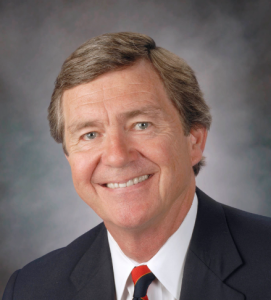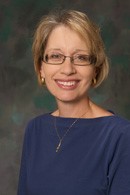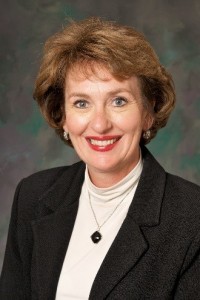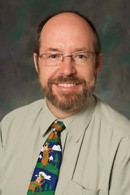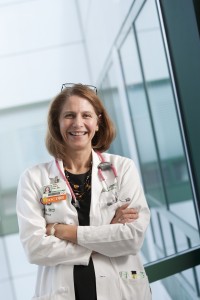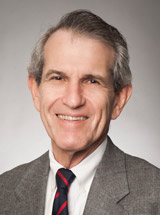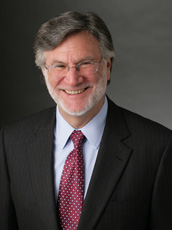Changes to Medical School Admissions: The Holistic Review
Holistic review medical school admissions affords each applicant balanced consideration of life experiences that are valued by the school, personal attributes, and metrics that predict academic success. The goal is to select applicants who can not only succeed, but those who can best fulfill a school’s mission and diversity interests. This session will review the rationale for implementation and four core principles of holistic review admissions noting the multiple dimensions of diversity that contribute to educational excellence of a medical school class and future physician workforce. An example will be presented of how one medical school implemented holistic review. Another example will be presented of the diversity outcomes that resulted from another school’s long term implementation of holistic review.
Pre-matriculation Programs
Prematriculation programs, like all programs, are a collection of coordinated activities designed to correct deficiencies in needed skills. In particular, prematriculation programs address competencies needed by students for rapid adjustment to the medical curriculum so that their education can be maximally effective. This raises the immediate question, “Why isn’t premedical education an adequate prematriculation program?” The simple, perhaps oversimplified, answer is “heterogeneity.” On the surface, it would appear that the important heterogeneity is in content background in spite of standard admissions prerequisites. This is evident in many prematriculation programs that provide exposure to content specifically designed to familiarize the student with early courses in medical school. Dig a little deeper and you find heterogeneity in the capacity of new students to adapt from the relatively flexible premedical environment to the less flexible medical curriculum. However, both of these types of heterogeneity exist as effects and not causes of successful skill acquisition in medical education. The heterogeneity that exists as a “cause” is the level of understanding of what a “learning skill” really is. Without this understanding, awareness is absent and in the absence of awareness, skill acquisition is impossible. Such skill areas would include problem analysis, visual recognition, communication, motor (both fine and gross), and procedural skills. Perhaps we need to address more than cognitive performance in prematriculation programs if they are to provide a lasting effect.
In this one-hour Web Audio Seminar, Dr. Pelley will provide a sampling of the various general approaches that he has experienced at his own institution and as a participant at other institutions. The discussion period may bring out additional program designs for comparison. The purpose is to illustrate the nature of the problems that are addressed and the general expectations of faculty for new medical students. A suggested prioritization of skill development will be suggested using the Expert Skills Program at Texas Tech as an example of a low resource, time efficient strategy to start the student on the path to Mastery Learning. The objective will be to help participants compose a program that can develop the student while they are in the premedical education environment that continues to scaffold their experience throughout medical school. Issues in measuring program effectiveness will be addressed. We can tell our students, “Our goal is not just to help you survive, but to help you match well for a residency!”
Longitudinal Integrated Clerkships: Challenges of Expanding to All Campuses and all Students
Longitudinal integrated clerkships (LIC) as a clerkship format have been in use at medical schools for over twenty years. The format of immersion in multiple simultaneous clerkships as opposed to block clerkships originally met the needs of smaller campuses and rural settings. Evidence for comparable test scores, increased retention, increased patient centeredness, and the ability to make an earlier career choice selection is leading more schools to consider implementing the LIC at large as well as small campuses. The University of South Dakota Sanford School of Medicine initiated an LIC at its Yankton campus in 1991. In 2013, the school implemented LICs on all clinical campuses. Steps in implementation included significant program and curriculum design, overcoming change angst, and faculty development. Presenters will describe challenges in implementation and suggest strategies to address the challenges.
Objectives:
Following this session, participants will be better able to:
- Identify the Longitudinal Integrated Clerkship (LIC) model
- Describe the evidence about advantages of the LIC as compared to block clerkships
- Anticipate potential challenges to implementation of a multi-campus LIC, and
- Identify strategies to address these challenges
Crossing the Synapse: Integrating Basic Science and Clinical Medicine at the Cognitive Level to Improve Medical Decision Making
Over 100 years ago Abraham Flexner disrupted American medical education by asserting that the sciences must play a foundational role in the intellectual development of a physician, thus setting the standard for the traditional curricular “2×2” model of concentrated basic science education followed by clinical training. Since then additional reforms have led to improved contextual integration of clinical education into the basic science curriculum through earlier clinical exposure and implementation of problem-based learning programs. Unfortunately, similar integration of advanced basic science education into the core clinical curriculum remains elusive, and the promise of meaningful curricular time for science educators unmet.
This web seminar will focus on newer approaches to advancing IAMSE’s core mission – to integrating science into the heart of medical practice. The session will overview a variety of current approaches, describing the benefits and challenges of each. Newer research describing how novice physicians integrate their basic science knowledge into their clinical reasoning will be reviewed, and methods to leverage this new understanding will be discussed. The session will conclude with an overview of the MedU Science project. This collaborative effort is teaming basic science and clinical educators together to develop an innovative national curriculum for advanced medical science education. The teaching and learning resources built from the curriculum will promote cognitive integration of students’ basic science understanding into their everyday medical decision-making for the purpose of improving their patients’ care.
Pros and Cons of Compressed Medical Schools
I will propose that widespread acceptance of the suitability of a 3 year medical undergraduate education would be a profound error for three main reasons. First, it has been attempted before by many U.S. medical schools and it was an abysmal failure and abandoned by the beginning of the 21st century. Second, in an era of an explosion in biomedical research and knowledge, the idea that less education is sufficient flies in the face of simple logic and echoes the mistakes of the past in such an attempt. In fact, residency program directors have bemoaned the poor preparation found in many of their recent trainees. Third, the prediction that a shortened medical school duration would lead to increased numbers of primary care physicians is not supported by past evidence and ignores the dualistic nature of primary care medicine: the provision of preventative medical advice and the management of complex, typically chronic, medical problems. The former does not require utilizing physicians to accomplish the task and the latter requires a broadly trained and expert physician who likely needs even more training than is currently the norm.
I will also propose, in response to the deficiencies of current training, a renewed focus on the curricular goals of the fourth year of medical school as a means of corrected current deficiencies in training.
